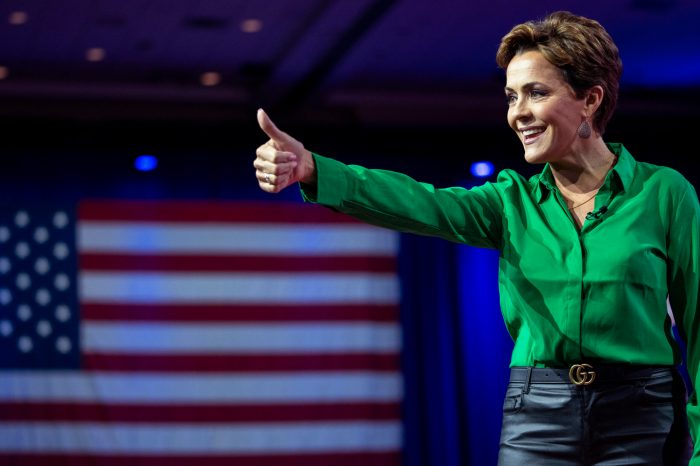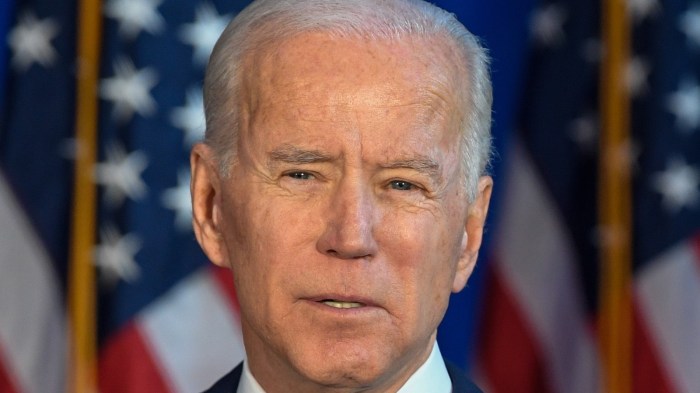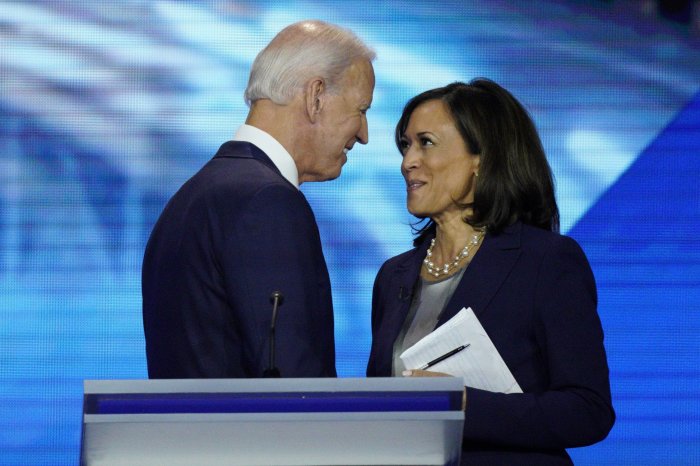Chooses a running mate crossword – Embark on an intriguing exploration of “Choosing a Running Mate Crossword,” a topic that unravels the fascinating intricacies of political strategy and decision-making. From deciphering cryptic crossword clues to analyzing historical precedents, this guide delves into the multifaceted nature of selecting a running mate, illuminating its impact on campaigns, elections, and the political landscape.
Uncover the historical significance of running mate choices, tracing their evolution over time and examining the profound impact they have had on electoral outcomes. Explore the intricate factors that influence a candidate’s selection, including compatibility, experience, demographics, and political strategy, and delve into case studies that dissect both successful and unsuccessful running mate pairings.
Crossword Clues

Crossword clues related to the term “chooses a running mate” cover a range of difficulty levels, from easy to challenging. These clues test the solver’s knowledge of the term and its various aspects.
The clues are designed to be diverse, encompassing different facets of the term. They may refer to the process of selecting a running mate, the qualities sought in a running mate, or the impact of choosing a running mate on a political campaign.
Easy Clues
- Action taken by a presidential candidate before an election
- The person who runs alongside the presidential candidate
- Decision made by a presidential candidate
Medium Clues, Chooses a running mate crossword
- Important factor in a presidential campaign
- Can be a strategic move to appeal to a wider range of voters
- Involves considering factors such as experience, electability, and chemistry
Challenging Clues
- Can have a significant impact on the outcome of an election
- Requires careful deliberation and consideration of multiple factors
- Can be a defining moment in a presidential candidate’s campaign
Historical Context

The selection of a running mate has played a significant role in politics throughout history. In the United States, the practice of choosing a vice presidential candidate dates back to the first presidential election in 1788.
Initially, the running mate was primarily seen as a backup to the president, assuming the presidency in the event of the president’s death or incapacity. However, over time, the role of the running mate has evolved into a more active and influential position.
Famous Running Mates and Their Impact
Throughout history, there have been several notable running mates who have had a significant impact on elections and the political landscape.
- Aaron Burr and Thomas Jefferson (1800):Burr’s role as Jefferson’s running mate helped to secure the Democratic-Republican victory in the election of 1800, marking the first peaceful transfer of power between political parties in the United States.
- Abraham Lincoln and Hannibal Hamlin (1860):Hamlin’s selection as Lincoln’s running mate helped to balance the ticket and appeal to voters in the North and South, contributing to Lincoln’s victory in the election of 1860.
- Franklin D. Roosevelt and Harry S. Truman (1944):Truman’s selection as Roosevelt’s running mate in 1944 was a strategic move to appeal to voters in the Midwest and West, helping to secure Roosevelt’s fourth term victory.
Factors Influencing the Choice
Selecting a running mate is a critical decision that can significantly impact a candidate’s chances of electoral success. Several key factors influence this choice, including compatibility, experience, demographics, and political strategy.
Compatibility
Compatibility refers to the personal chemistry and shared values between the candidate and their running mate. A strong relationship can foster trust and unity within the campaign, allowing them to present a cohesive front to voters. Compatibility also ensures that the running mate aligns with the candidate’s policy positions and political ideology.
Experience
Experience in government or other relevant fields can enhance a running mate’s credibility and qualifications. Voters often seek candidates with a proven track record of accomplishment and expertise in areas such as economics, foreign policy, or healthcare. A running mate with significant experience can complement the candidate’s skills and provide valuable support in policy development and decision-making.
Demographics
Demographic factors, such as race, gender, age, and religion, can play a role in the choice of a running mate. Candidates may seek to balance their ticket by selecting a running mate who represents a different demographic group, appealing to a broader base of voters.
Demographic considerations can also help candidates address specific issues or concerns of particular constituencies.
Political Strategy
Political strategy involves the overall campaign goals and the desired impact of the running mate’s selection. Candidates may choose a running mate to strengthen their position in certain regions, appeal to swing voters, or counter potential attacks from opponents. The running mate’s background and political affiliations can influence the campaign’s messaging and strategy.
Case Studies
In-depth examination of specific running mate choices provides valuable insights into the factors influencing their success or failure. These case studies offer lessons that can guide future election strategies.
Successful running mate pairings demonstrate effective collaboration, shared values, and complementary skills. Unsuccessful choices, on the other hand, often result from mismatched personalities, conflicting priorities, or a lack of synergy between the candidates.
Successful Case Study: John F. Kennedy and Lyndon B. Johnson (1960)
Kennedy’s choice of Johnson as his running mate was widely regarded as a masterstroke. Johnson’s experience as Senate Majority Leader and his strong ties to the Southern Democratic establishment brought essential support to Kennedy’s campaign.
The pairing balanced Kennedy’s youth and charisma with Johnson’s political savvy and legislative prowess. Their complementary skills and shared commitment to civil rights created a formidable ticket that ultimately secured victory.
Unsuccessful Case Study: Michael Dukakis and Lloyd Bentsen (1988)
Dukakis’s selection of Bentsen as his running mate failed to generate the expected boost to his campaign. Bentsen’s reputation as a conservative Democrat alienated some liberal voters, while his lack of charisma failed to energize the base.
The pairing lacked a clear strategic rationale and failed to effectively address the concerns of key constituencies. Dukakis and Bentsen ultimately lost the election to George H.W. Bush and Dan Quayle.
Lessons Learned
These case studies highlight the importance of careful consideration in running mate selection. Successful pairings prioritize compatibility, shared goals, and complementary skills. Unsuccessful choices often reflect mismatches in personality, values, or political priorities.
By analyzing these examples, candidates and their advisors can gain valuable insights into the factors that influence the success or failure of running mate choices, enabling them to make informed decisions that enhance their chances of electoral victory.
Impact on Campaigns

The choice of a running mate can significantly impact a candidate’s campaign strategy. A well-chosen running mate can complement the candidate’s strengths, broaden their appeal to voters, and provide valuable support during the campaign. Conversely, a poorly chosen running mate can alienate voters, damage the candidate’s reputation, and make it more difficult to win the election.
Benefits of a Well-Chosen Running Mate
A well-chosen running mate can provide a number of benefits to a candidate’s campaign, including:
- Broadening the candidate’s appeal:A running mate from a different demographic group or with different political views can help to broaden the candidate’s appeal and make them more attractive to a wider range of voters.
- Providing valuable support:A running mate can provide valuable support to the candidate during the campaign, including fundraising, campaigning, and preparing for debates.
- Complementing the candidate’s strengths:A running mate with complementary skills and experience can help to make up for any weaknesses in the candidate’s own qualifications.
Drawbacks of a Poorly Chosen Running Mate
A poorly chosen running mate can have a number of negative consequences for a candidate’s campaign, including:
- Alienating voters:A running mate who is unpopular with voters or who has a controversial past can alienate voters and make it more difficult for the candidate to win the election.
- Damaging the candidate’s reputation:A running mate who is involved in a scandal or who makes offensive statements can damage the candidate’s reputation and make it more difficult for them to win the election.
- Making it more difficult to win the election:A running mate who is not well-qualified or who is not a good fit for the candidate can make it more difficult for the candidate to win the election.
Examples of How Running Mates Have Influenced Campaign Messaging, Fundraising, and Voter Turnout
There are a number of examples of how running mates have influenced campaign messaging, fundraising, and voter turnout.
- Campaign messaging:In 2008, Barack Obama’s choice of Joe Biden as his running mate helped to reassure voters who were concerned about his lack of experience. Biden’s long experience in the Senate and his reputation as a moderate helped to make Obama more appealing to a wider range of voters.
- Fundraising:In 2016, Donald Trump’s choice of Mike Pence as his running mate helped to raise a significant amount of money for the campaign. Pence’s connections to conservative donors helped to bring in millions of dollars in donations.
- Voter turnout:In 2020, Kamala Harris’s selection as Joe Biden’s running mate helped to increase voter turnout among Black voters. Harris’s appeal to Black voters helped to drive up turnout in key swing states, which helped Biden to win the election.
The choice of a running mate is a critical decision for any candidate. A well-chosen running mate can provide a number of benefits to a campaign, while a poorly chosen running mate can have a number of negative consequences. Candidates should carefully consider the potential impact of their running mate selection before making a decision.
Legal and Ethical Considerations: Chooses A Running Mate Crossword
Choosing a running mate involves several legal and ethical considerations that can impact the decision-making process. These considerations include eligibility requirements, disclosure rules, and potential conflicts of interest.
Eligibility requirements vary by country and jurisdiction, but generally, a running mate must meet the same eligibility requirements as the presidential candidate, such as age, citizenship, and residency. Disclosure rules require candidates to disclose information about their running mates, including their financial interests, criminal history, and any potential conflicts of interest.
Potential Conflicts of Interest
Potential conflicts of interest arise when a running mate has financial or personal ties that could influence their decision-making or create the appearance of impropriety. For example, a running mate with close ties to a particular industry could be perceived as biased in favor of that industry.
To mitigate potential conflicts of interest, candidates are required to disclose any potential conflicts and may be required to recuse themselves from decisions that could benefit their running mate or their associates.
Cross-Cultural Perspectives

The practice of choosing running mates varies significantly across cultures, shaped by a complex interplay of cultural, political, and historical factors. Understanding these cross-cultural differences is crucial for comprehending the dynamics of candidate selection and its impact on electoral outcomes.
In some cultures, such as the United States, the selection of a running mate is primarily driven by strategic considerations, with an emphasis on balancing the ticket and appealing to a broad range of voters. Factors such as regional representation, ideological compatibility, and personal chemistry play a significant role in the decision-making process.
Political Systems
The political system of a country also influences the process of choosing a running mate. In parliamentary systems, where the head of government is typically the leader of the majority party in the legislature, the running mate is often selected from within the party ranks.
This ensures a cohesive and unified leadership team.
In presidential systems, where the president is directly elected by the people, the running mate is typically chosen to complement the presidential candidate’s strengths and weaknesses. The selection process often involves a more thorough vetting and consideration of factors such as public opinion and media coverage.
Cultural Values
Cultural values also play a role in shaping the practices of choosing running mates. In some cultures, the emphasis is on consensus and harmony, leading to a more collaborative and inclusive selection process. In other cultures, the focus is on competition and individual achievement, resulting in a more adversarial and meritocratic approach.
For example, in Japan, the running mate is often selected through a process of consensus-building within the ruling party, with a strong emphasis on maintaining unity and preserving the party’s image.
Historical Context
The historical context of a country can also influence the selection of running mates. In countries with a history of ethnic or religious tensions, the choice of a running mate may be influenced by the need to balance different constituencies and promote national unity.
For example, in India, the selection of a running mate from a minority group or a different region can be seen as a strategic move to appeal to a broader voter base and mitigate potential divisions.
FAQ Summary
What are some key factors to consider when choosing a running mate?
Compatibility, experience, demographics, and political strategy are crucial factors that can significantly impact the outcome of an election.
How has the role of running mates evolved over time?
Historically, running mates played a relatively minor role, but their importance has grown over time, and they now play a vital role in campaigning and governing.
What are some famous examples of successful running mate choices?
Franklin D. Roosevelt and Harry S. Truman, John F. Kennedy and Lyndon B. Johnson, and Barack Obama and Joe Biden are notable examples of successful running mate pairings.